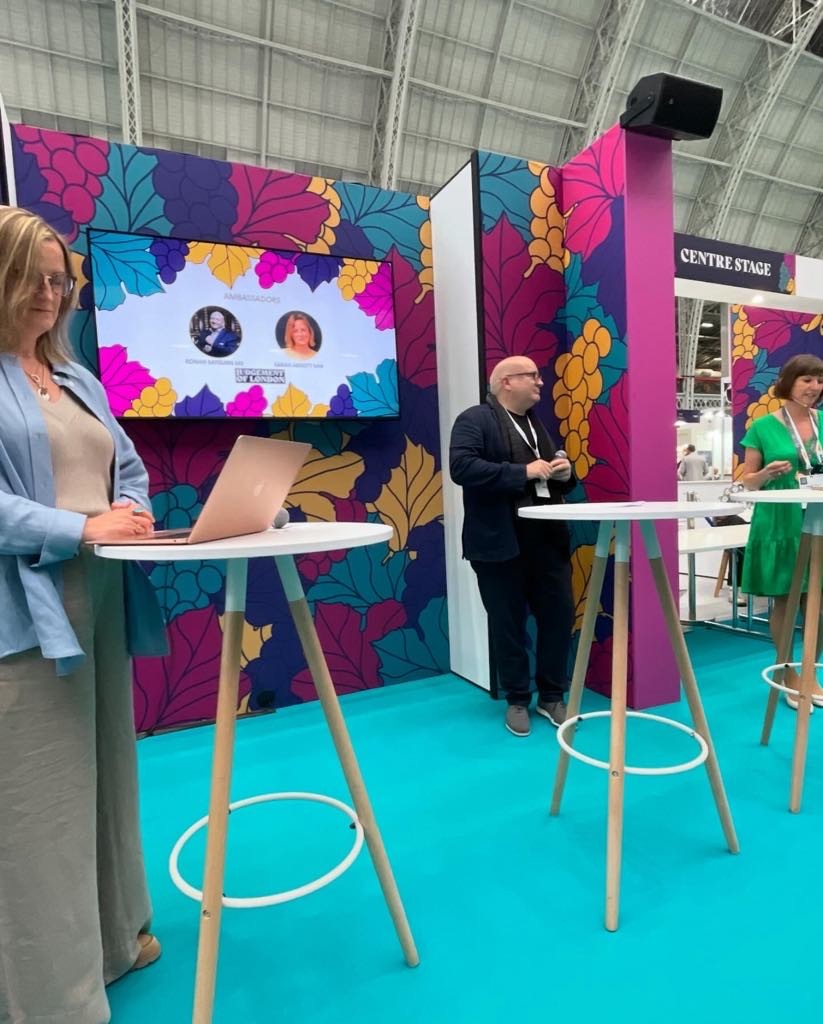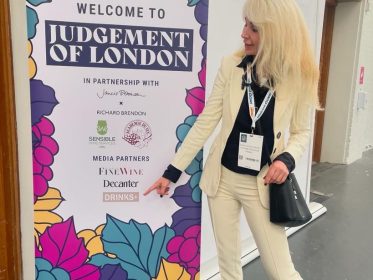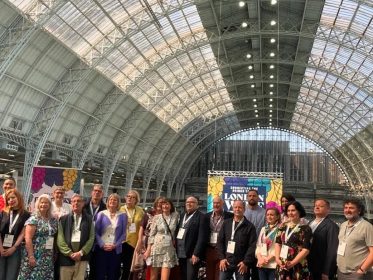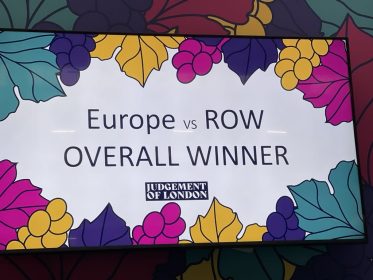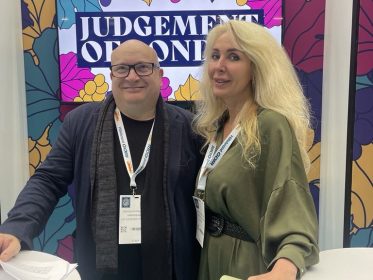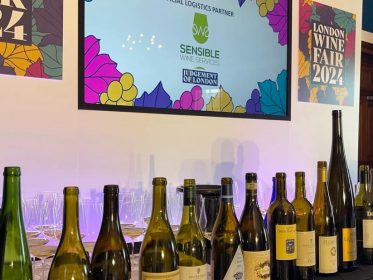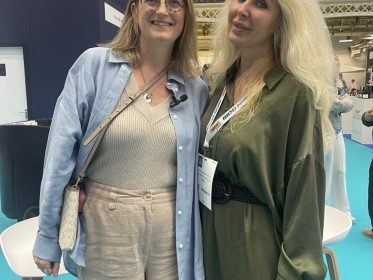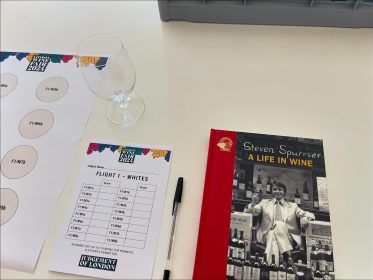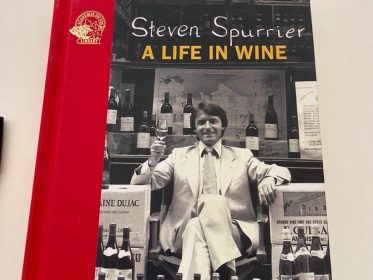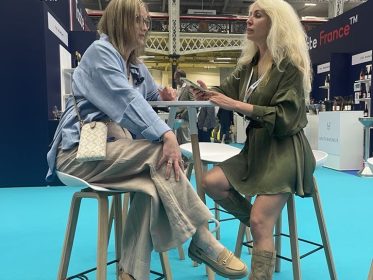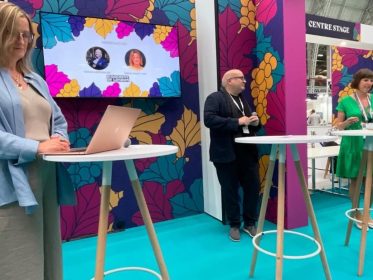A Second Step into History: In the Footsteps of Titan
Judgment of London: Europe leads by a small margin!
On May 20, the London Wine Fair’s Judgment of London took place, and already on May 21, the organizers published the verdict — so we can discuss the results.
The Drinks+ media group would like to thank the London Wine Fair organizers and events director Hannah Tovey personally for the honor of being the information partner of this exceptional event.
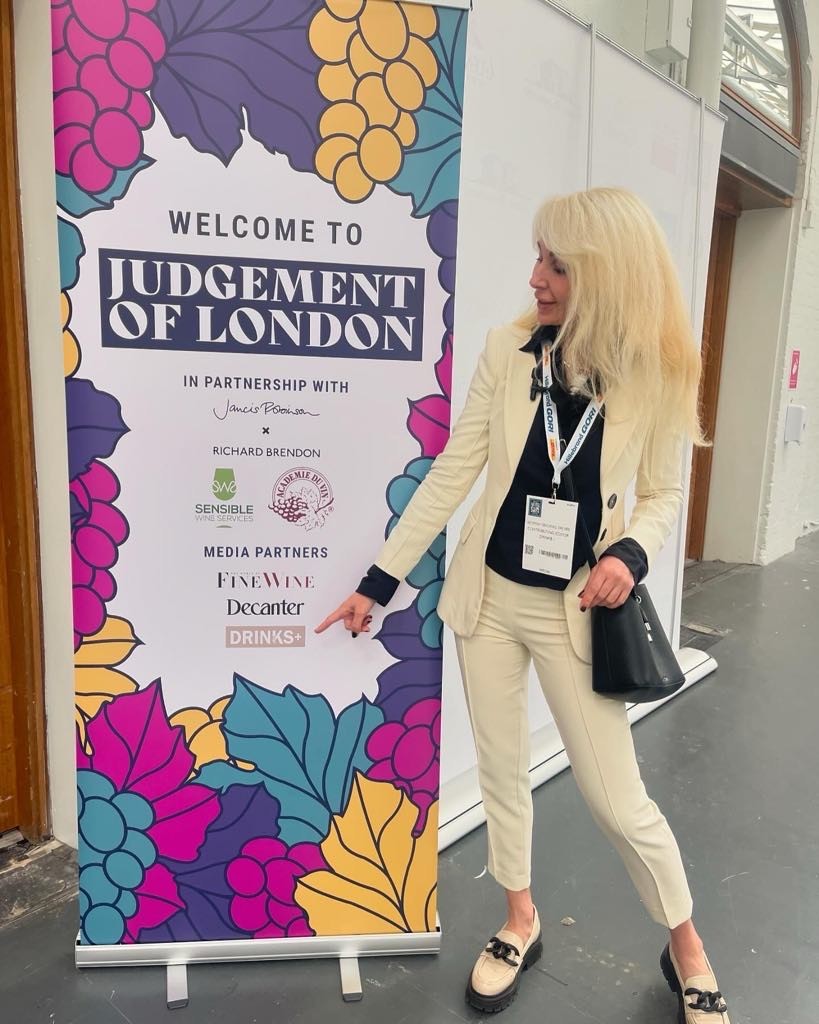
In recent years, the world has seen a surge in wine competitions, each striving to distinguish itself amid a crowded field. However, among the myriad events, one stands out for its historical significance and the promise of setting new standards: the Judgement of London, an homage to Steven Spurrier’s landmark Judgement of Paris.
The original Judgement of Paris in 1976 shocked the wine world when Californian wines bested their French counterparts in a blind tasting, fundamentally altering perceptions and market dynamics. This year, the London Wine Fair revisits this iconic event, updating its format to reflect the current diversity and maturity of the global wine industry.
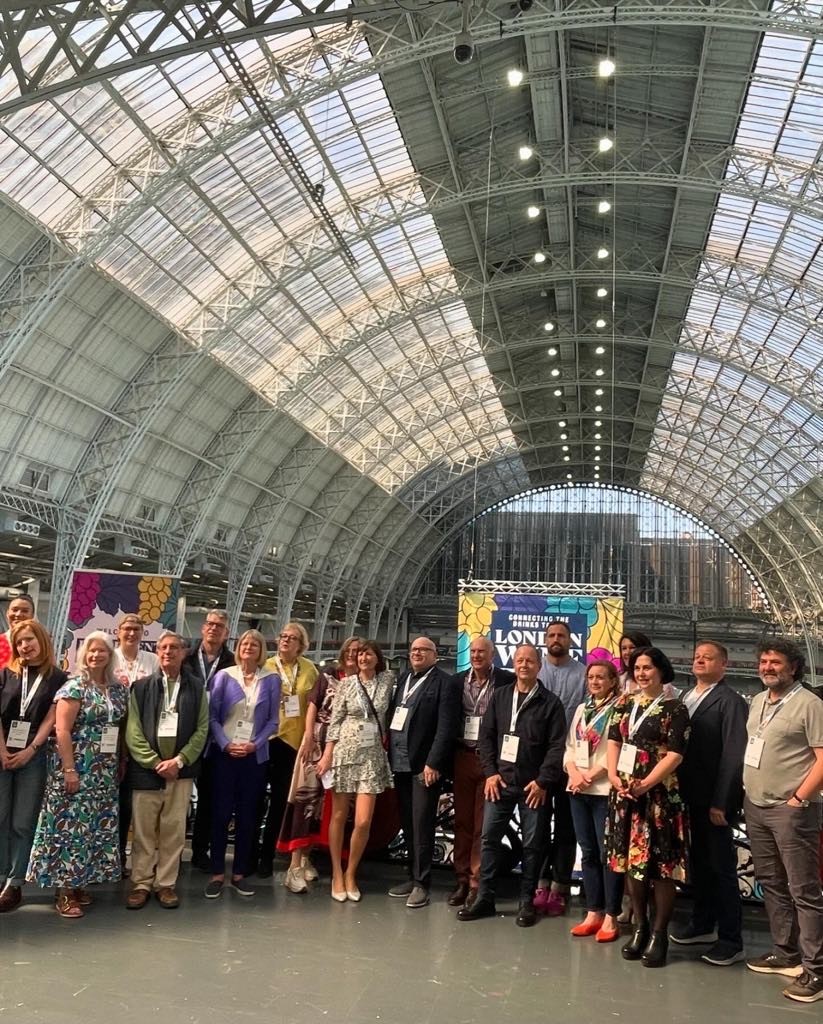
Ronan Sayburn, MS, CEO of The Court of Master Sommeliers, and Sarah Abbott, MW, MD of Swirl Wine Group, judge of the Wine Travel Awards 2022–2023, curated this year’s Judgment of London. The panel comprises 21 esteemed judges from the UK wine industry, including leading buyers, top sommeliers, and noted wine writers. The format involves tasting pairs of European icon wines and their non-European equivalents, divided into eight pairs of whites and eight pairs of reds; all tasted under strict exam conditions.
Kateryna Yushchenko spoke with some of the leading professionals involved in the event to understand its impact on the wine world.
Kateryna Yushchenko was able to talk behind the scenes of this extraordinary event with some of the leading specialists involved in the event, before and after the tasting — to understand its algorithms and impact on the wine world.
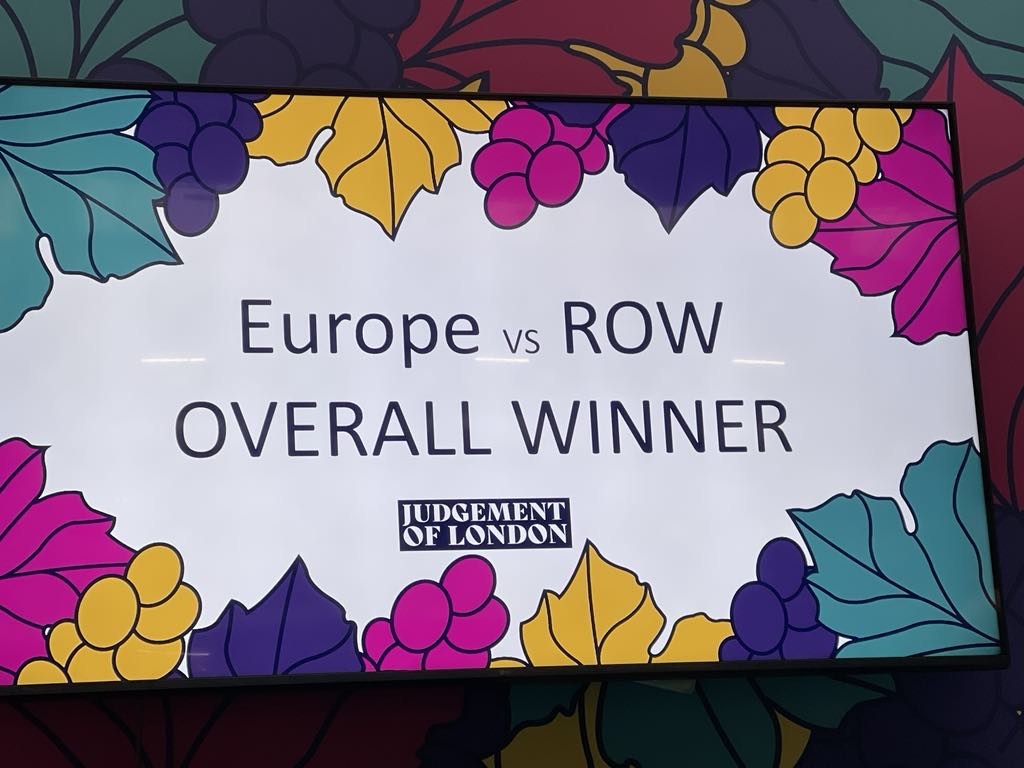
The Significance and Evolution of Judgement
Kateryna Yushchenko: This competition seems poised to change the standards of wine judging. Would you say it’s the best of all existing competitions?
Jancis Robinson: I have to wait and see what the wines are before making any judgment. I haven’t a clue what the wines are and how they’ve been chosen, but I always love the chance to taste wines blind. Particularly good wines blind, so I approve of the practice of comparing different regions. I think that benefits the consumer. So I think it’s a worthwhile exercise, but at the moment, I’m in the dark.
Kateryna Yushchenko: But do you think this could set new standards, especially when comparing New World and Old World wines?
Jancis Robinson: I’m not very keen on the term New World. It’s a little outdated. You can say Europe versus non-Europe. But it’s all one big world of wine where everyone tries to make the best wine. I don’t think there’s any animosity between the New and the Old. It will be interesting to see.
Kateryna Yushchenko: Would this help consumers understand the global world of wine better?
Jancis Robinson: I would be very surprised if we concluded that all New World wines are like this and all Old World wines are like that. I’m voting for how the wine is.
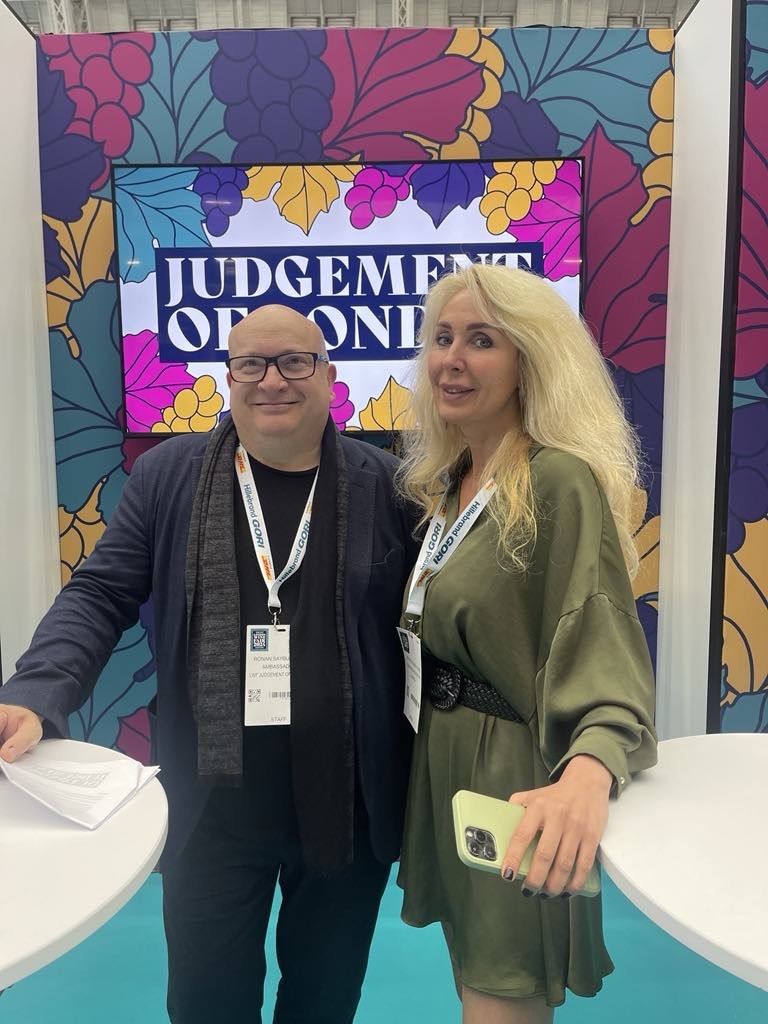
Ensuring Impartiality and Consistency
Kateryna Yushchenko: What are the challenges in ensuring impartiality and consistency among the judges during the blind tasting?
Sarah Abbott MW: The most important factor is the experience and selection of the judges. We needed proven experience in judging and assessing wines at a high level, a balance between specialists and generalists, and judges who approach wines with purity of heart. London is fortunate to have a deep heritage of wine education and tasting, allowing us to pull from a vast pool of experts. All wines were opened and tasted blind in a secure room, decanted into identical containers, and scored without any conferring among judges.
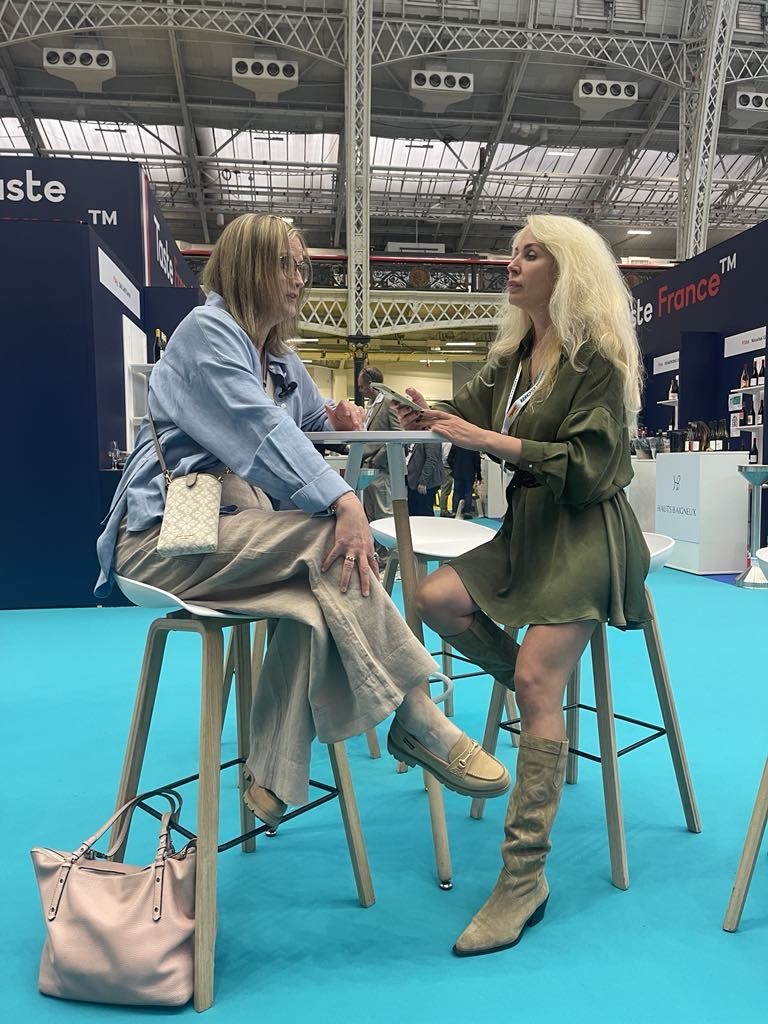
The Results
Over a period of four hours, 32 wines were tasted by 21 judges, a selection of the UK’s best palates, two-thirds of which were either Masters of Wine or Master Sommeliers. Each wine was scored out of 10, resulting in a grand total for each wine and an overall score for European versus Rest of World wines.
The key findings are as follows:
Top Scoring White
- Pegasus Bay Riesling, Bel Canto, Waipara, North Canterbury, New Zealand 2011
Runner Up (White)
- Polish Hill Riesling, Grosset, Clare Valley, Australia 2012
Top Scoring Red:
- Hermitage Rouge, Jean Louis Chave, Rhône, France 2012
Runner Up (Red):
- Château Mouton Rothschild, Pauillac, Bordeaux, France 2009
Top Scoring Wine Overall:
- Pegasus Bay Riesling, Bel Canto, Waipara, North Canterbury, New Zealand 2011
Overall Scores:
- European wines: 2,621.5 points
- Rest of the World wines: 2,604.5 points
- Overall Winner: Europe (by a narrow margin of 0.65%)
The full list of wines, shown in pairs and in the order of tasting each pairing, is as follows:
White
Riesling
- Rest of the World: Polish Hill Riesling, Grosset, Clare Valley, Australia 2012
- Europe: Trimbach, Riesling Clos St Hune, Alsace, France 2008
Chardonnay
- Europe: Cervaro Della Sala, Marchese Antinori, Umbria, Italy 2018
- Rest of the World: Kistler Chardonnay, Les Noisetiers, Sonoma, USA 2018
Chardonnay
- Europe: Corton Charlemagne Grand Cru, Maison Louis Jadot, Burgundy, France 2017
- Rest of World: Felton Road Chardonnay Block 6, Central Otago, New Zealand 2017
Blend
- Rest of the World: Au Bon Climat Hildegard, Santa Maria Valley, USA 2020
- Europe: Terre Alte, Livio Felluga, Friuli, Italy 2020
Sauvignon Blanc
- Europe: Château Smith Haut Lafitte, Grand Cru Classé, Pessac Léognan, Bordeaux, France 2017
- Rest of the World: Peter Michael Winery Sauvignon Blanc, L’Apres Midi, Sonoma, USA 2014
Textured
- Rest of the World: Pegasus Bay Riesling, Bel Canto, Waipara, North Canterbury, New Zealand 2011
- Europe: Franz Hitzberger, Grüner-Veltiner Singerriedel, Wachau, Austria 2019
Rhône
- Rest of the World: Viognier, Tahbilk, Nagambie Lakes, Australia 2011
- Europe: St Joseph Blanc Les Oliviers, Pierre Gonon, Rhône, France 2020
Textured
- Europe: Quinta dos Roques Encruzado, Dão, Portugal 2014
- Rest of the World: David & Nadia Chenin Blanc, Skaliekop, Swartland, South Africa 2019
Red
Pinot Noir
- Rest of the World: Storm Pinot Noir, Ridge, Hemel-en-Aarde, South Africa 2019
- Europe: Bonnes Mares Grand Cru, Domaine Dujac, Côtes de Nuits, France 2017
Pinot Noir
- Europe: Spätburgunder, Weingut Mayer-Näckel, Ahr Valley, Germany 2019
- Rest of the World: Hirsch Vineyards Pinot Noir, San Andreas, Sonoma, USA 2019
Cabernet
- Rest of the World: Promontory, Harlan Estate, Napa Valley, USA 2019
- Europe: Château Mouton Rothschild, Pauillac, Bordeaux, France 2009
Cabernet
- Europe: Château Léoville Las Cases, St Julien, Bordeaux, France 2009
- Rest of the World: Viñedo Chadwick, Maipo Valley, Chile 2015
Syrah
- Rest of World: Homage Syrah, Trinity Hill, Hawkes Bay, New Zealand 2018
- Europe: Hermitage Rouge, Jean Louis Chave, Rhône, France, 2012
Textured
- Europe: Saperavi Qvevri, Quevri Wine Cellar, Kakheti, Georgia 2019
- Rest of the World: Clonakilla Syrah, Canberra, New South Wales, Australia 2015
Grenache
- Rest of World: Torbreck Hillside Vineyard Grenache, Barossa Valley, Australia 2016
- Europe: Clos Magador, Priorat, Spain 2019
Cabernet Franc
- Europe: Saumur Champigny, Clos Rougeard, Loire, France 2018
- Rest of World: Gran Enemigo, Cabernet Franc, Gualtallary, Argentina 2018
The Broader Impact
Kateryna Yushchenko: What do you expect to be the most surprising outcomes from this year’s event?
Sarah Abbott MW: Including a Saperavi from Georgia paired with a Syrah, which did really well, was quite surprising. The overall quality of the wines was superb, with incredible consistency and excitement. There wasn’t a huge difference between European and rest-of-the-world wines, which speaks to the global advancement in winemaking.
Kateryna Yushchenko: How will this influence the general world of wine?
Sarah Abbott MW: I hope it reminds everyone of the richness and depth of wine. It shows that world-class wine can come from unexpected places, uniting us in our love for great wine and making the world of wine bigger and stronger.
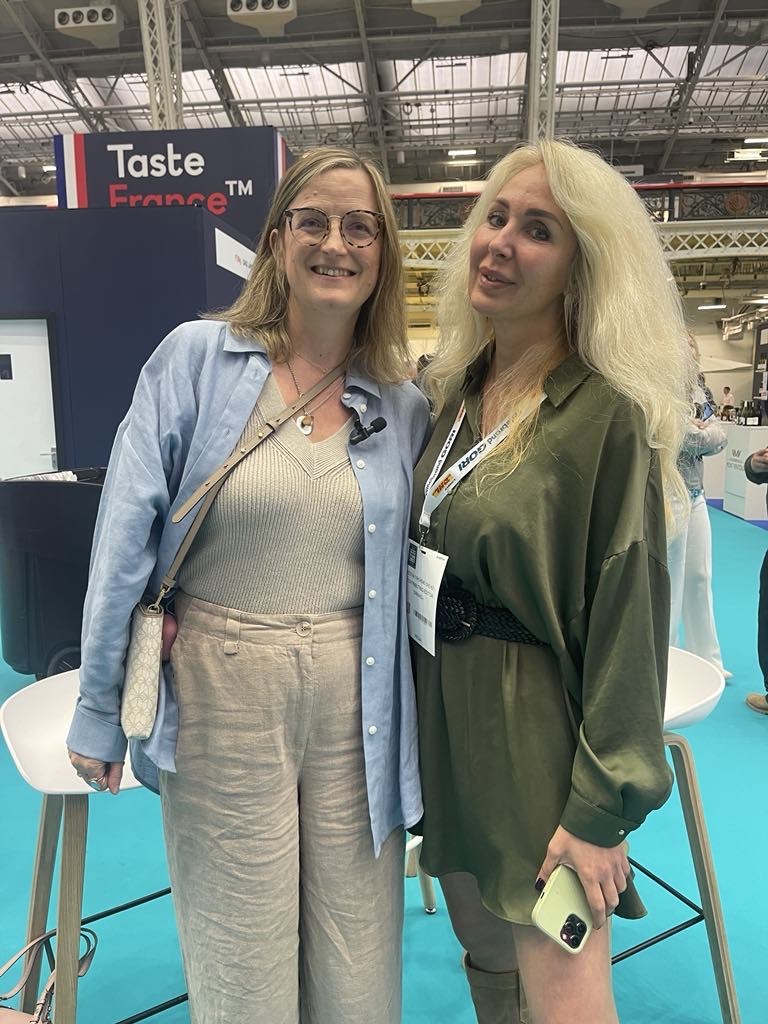
Tribute to Steven Spurrier
Kateryna Yushchenko: How does the Judgement of London serve as a tribute to Steven Spurrier’s legacy?
Ronan Sayburn MS: Steven was a great advocate for emerging wine regions. He championed distinctive styles from new regions. If he were with us, he’d be 100% behind this idea. All we can do is pay tribute to him, but it’s definitely done in his spirit.
Breaking Stereotypes
Kateryna Yushchenko: How will the Judgement of London influence perceptions of non-European wines?
Ronan Sayburn MS: It may stop the perception that old-world wines are better. Both new-world and old-world wines are fantastic in their own right. It democratises quality wine, showing that no particular area dominates anymore. This is something Steven Spurrier would have wholeheartedly supported.
The Evolution of Wine Judging
Kateryna Yushchenko: How has the evolution of the wine industry impacted the criteria for judging in this event?
Richard Bampfield MW: We’re now used to wines from many different countries. Thirty years ago, many of these wines weren’t even exported. Today, there’s more variety and diversity than ever, and I hope that will come across in what we’re tasting.
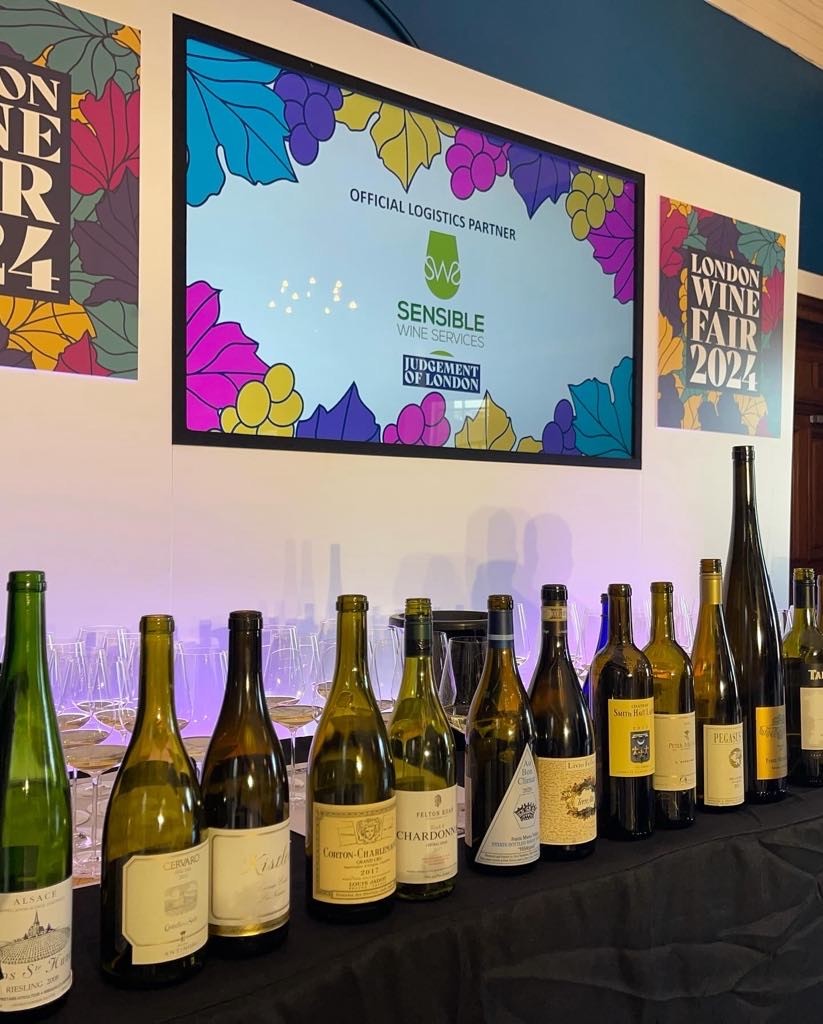
As the Judgement of London unfolds, it aims to provide a nuanced perspective on the global wine landscape, honouring Steven Spurrier’s legacy while pushing the boundaries of contemporary wine appreciation. By comparing the best of Europe with the rest of the world, it seeks not to declare a winner but to celebrate the richness and diversity of wine, ensuring that quality is recognised and appreciated universally.
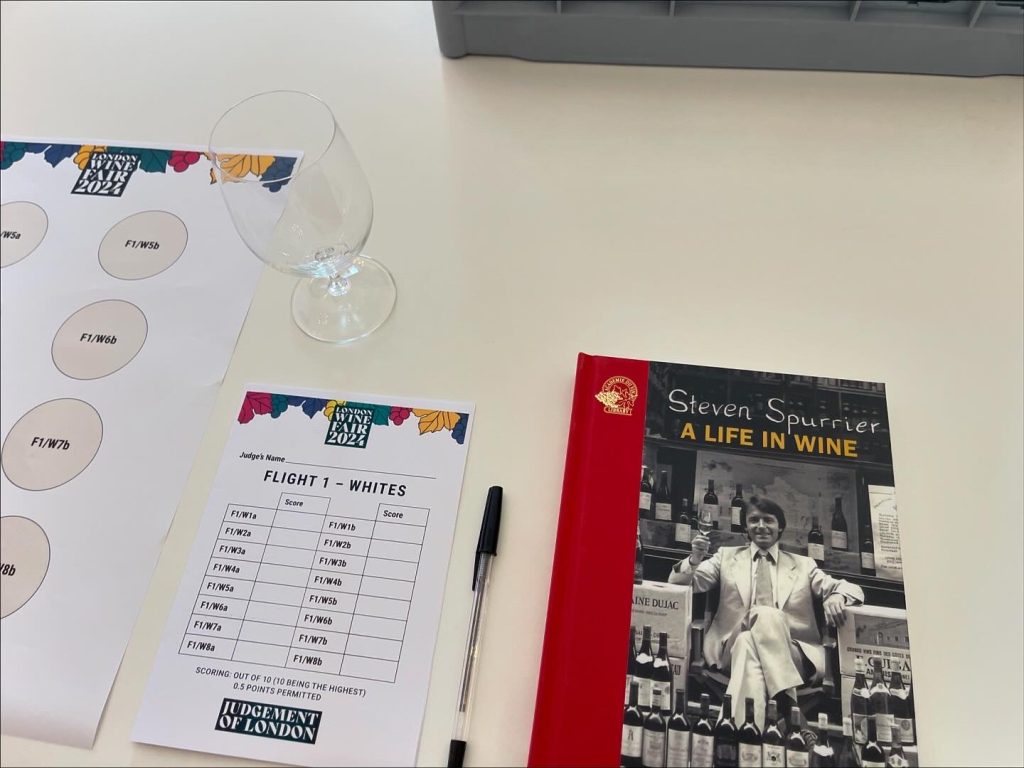
As we step into this new chapter, we honor the past while embracing the global diversity that defines today’s wine landscape. The footsteps of Titan — Steven Spurrier — lead us onward, reminding us that every sip carries the weight of history and the promise of discovery. The Judgement of London not only celebrates the legacy of a visionary but also sets the stage for a future where the best wines from around the world can shine equally. In following these footsteps, we embark on a journey that enriches our understanding and appreciation of wine, underscoring its timeless allure and infinite potential.
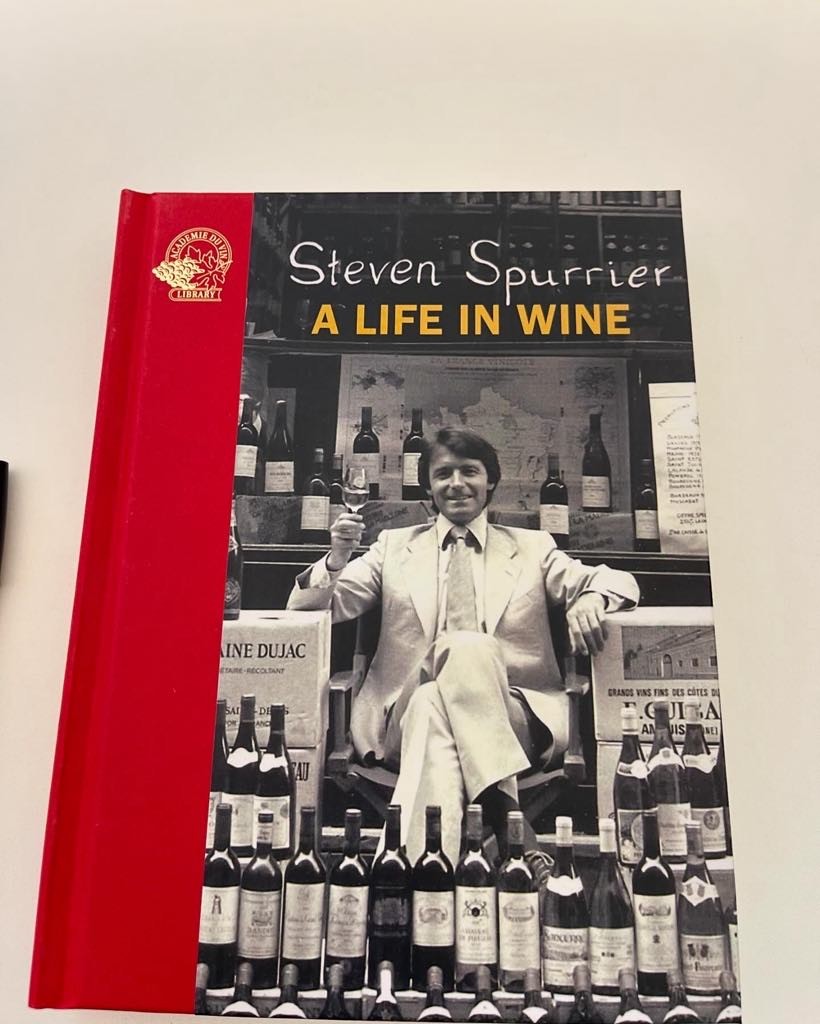
The judges have all been selected from the UK wine industry and are considered leaders in their fields; more than 70% are either Masters of Wine or Master Sommeliers. They are:
- Elliot Awin, Partner at ABS Wine Agencies
- Isa Bal MS, Consultant Sommelier, Trivet Restaurant
- Richard Bampfield MW, Wine Consultant
- Stephen Brook, Contributing Editor of Decanter and Author
- Alistair Cooper MW, Writer, Consultant and Judge
- Dawn Davies MW, Buying Director, Speciality Drinks
- Gearoid Devaney MS, Director of Flint Wines and Cabotte
- Sarah Jane Evans MW, Wine Writer
- Tina Gellie, Content Manager for the Decanter brand
- Aleesha Hansel, Wine Writer
- Daniel Illsley, Founder of Theatre of Wine
- Anne Krebiehl MW, Wine Writer
- Kathrine Larsen-Robert MS, Head of Fine Wine, Enotria
- Adam Lechmere, Publishing Director, Académie du Vin Library
- Regine Lee MW, Indigo Wine, Managing Director
- Margaret Rand, Wine Writer, General Editor of the Pocket Wine Book
- Laura Rhys MS, Head of Wine – Communications, Education and Style, Gusbourne
- Jancis Robinson MW OBE, Wine Writer of The FT and JancisRobinson.com
- Patrick Schmitt MW, Editor-in-Chief, The Drinks Business
- Matt Wilkin MS, Director, H2Vin
- Clem Yates MW, Founder of English Pink rosé
